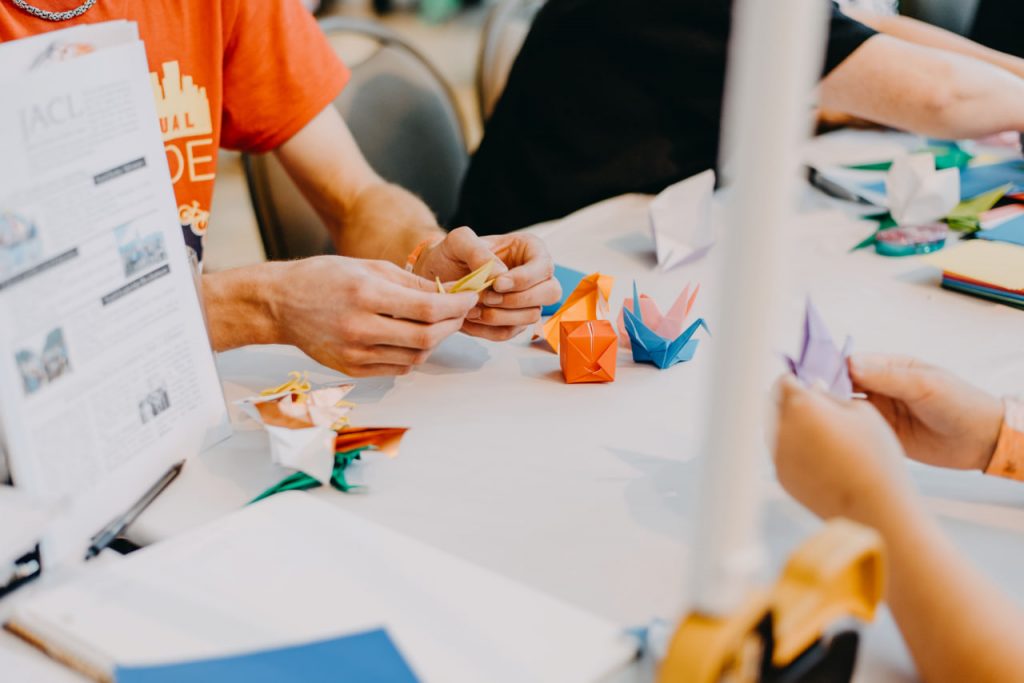Origami is more than just an art form—it is a powerful tool for mental well-being. The process of folding paper into intricate shapes engages the mind, reduces stress, and enhances cognitive skills. Whether practiced as a hobby, a therapeutic exercise, or an educational tool, origami has numerous psychological benefits that contribute to overall well-being.
Origami as a Stress-Relief Practice
In today’s fast-paced world, many people struggle with stress and anxiety. Engaging in creative activities like origami offers a break from daily pressures, promoting a state of relaxation and mindfulness. The rhythmic folding motions encourage a meditative flow, similar to yoga or deep breathing exercises.
Origami helps shift focus away from worries and onto the present moment. This practice:
- Calms the nervous system by reducing cortisol (the stress hormone).
- Promotes mindfulness, similar to meditation.
- Creates a sense of achievement, boosting self-confidence.
Studies have shown that repetitive, structured activities like origami can lower anxiety levels and improve mood, making it a valuable tool for managing stress.
Origami and Cognitive Development
The act of folding paper into precise shapes enhances cognitive abilities and problem-solving skills. Origami requires focus, patience, and spatial awareness, all of which strengthen brain function.
Some of the cognitive benefits of origami include:
- Improved concentration: Following step-by-step instructions trains the brain to stay focused.
- Enhanced problem-solving: Figuring out complex folds strengthens logical thinking.
- Boosted hand-eye coordination: Precise movements improve fine motor skills.
- Better memory retention: Learning and remembering folds exercises the brain.
For children, origami is an excellent way to develop spatial intelligence and creativity, while for adults, it serves as a form of mental exercise that helps keep the brain sharp.
Origami in Therapy and Rehabilitation
Origami is widely used in therapy and rehabilitation programs to help individuals with various challenges, including motor skill impairments, mental health conditions, and neurodevelopmental disorders.
- For Stroke Patients: Folding exercises help improve hand dexterity and coordination.
- For Autism and ADHD: The structured, repetitive nature of origami enhances focus and patience.
- For PTSD and Anxiety: Engaging in a creative, calming activity provides emotional relief and a sense of control.
Origami has been integrated into art therapy, occupational therapy, and even psychological counseling, helping people express emotions, develop confidence, and regain lost skills.
Origami as a Social and Emotional Tool
While origami can be a solitary activity, it is also a powerful social tool that brings people together. Learning and teaching origami fosters:
- Connection and communication: Sharing the art of origami encourages bonding.
- Patience and perseverance: Working through mistakes teaches resilience.
- A sense of accomplishment: Completing a complex design boosts self-esteem.
Origami is especially valuable in educational settings, where it promotes teamwork and collaboration among students. It also fosters cultural appreciation, as many origami models are rooted in Japanese traditions and history.
Conclusion
Origami is more than just an artistic pastime—it is a therapeutic, cognitive, and emotional tool with far-reaching benefits. Whether you are looking to relieve stress, improve mental focus, or strengthen motor skills, this ancient practice offers a simple yet profound way to enhance overall well-being.
With just a piece of paper and a bit of patience, origami provides a pathway to relaxation, creativity, and personal growth. So why not take a moment today to fold a simple paper crane and experience the mental benefits for yourself?

